Business Law Case Study: Pure Nature Sydney Pty Ltd [2018] NSWSC 914
VerifiedAdded on 2022/12/29
|5
|760
|56
Case Study
AI Summary
This case study analyzes the legal issues in the matter of Pure Nature Sydney Pty Ltd [2018] NSWSC 914, focusing on shareholder disputes and alleged oppressive conduct under sections 232 and 233 of the Corporations Act 2001 (Cth). The case involves a dispute between shareholders seeking buy-out orders. The court examined the principles of shareholder oppression, discrimination, and unfair prejudice. The decision highlights the importance of cooperation among shareholders and the potential for company winding up when irreconcilable differences exist. The judgment emphasizes that when both parties are found to be oppressive, the breakdown of cooperation is evident and winding up of the company is the appropriate solution. The case study includes relevant case laws, journal articles, and legislation, providing a comprehensive understanding of the legal principles and their implications for businesses.
1 out of 5
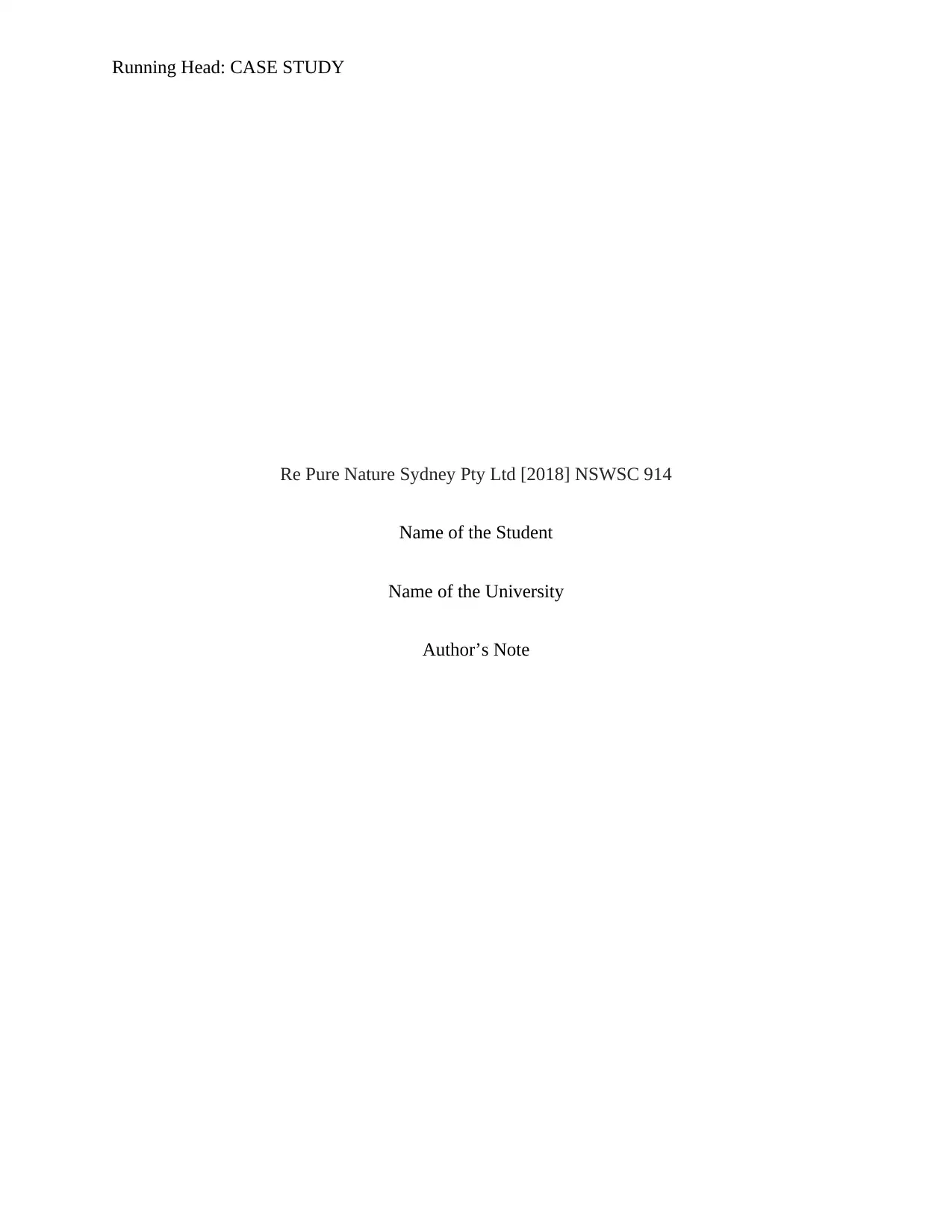
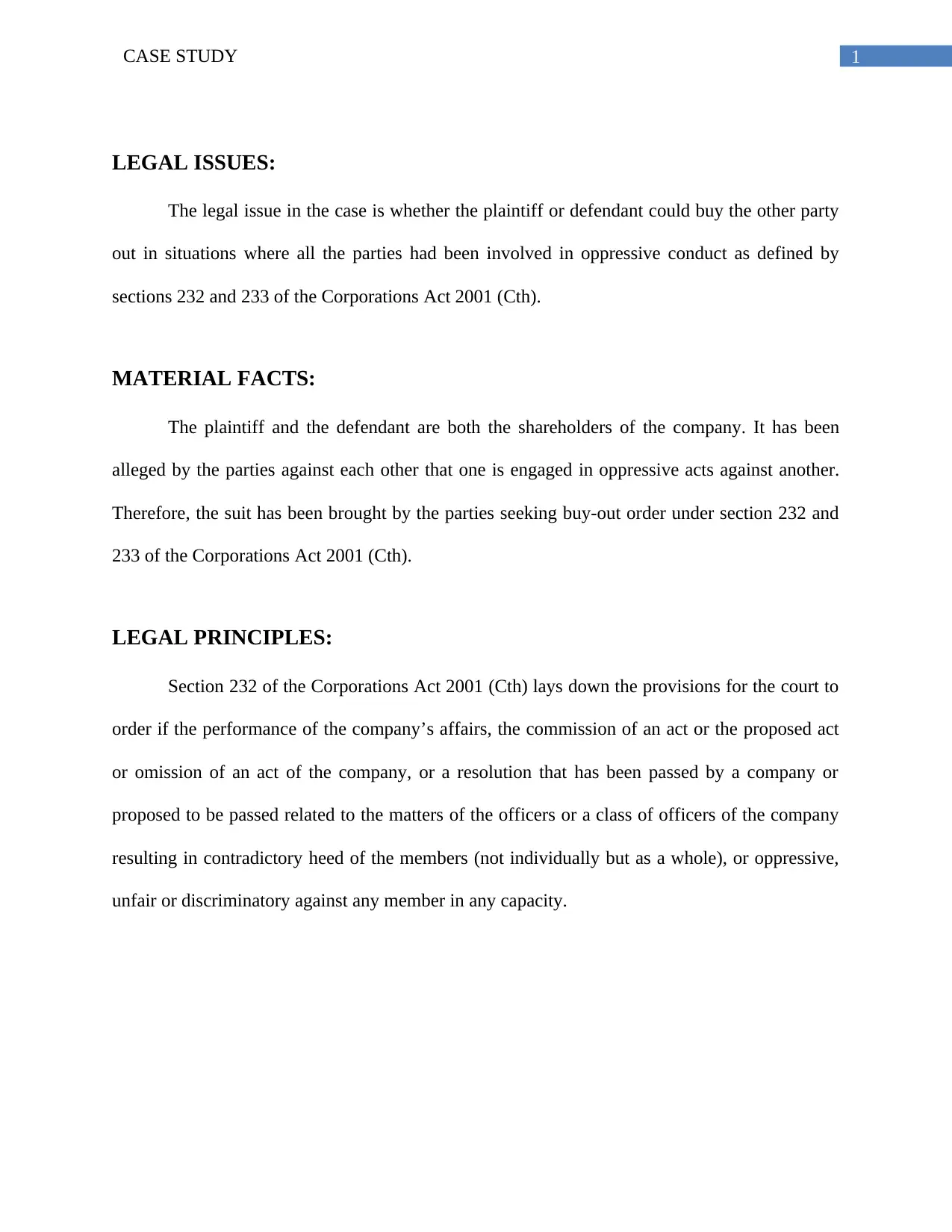
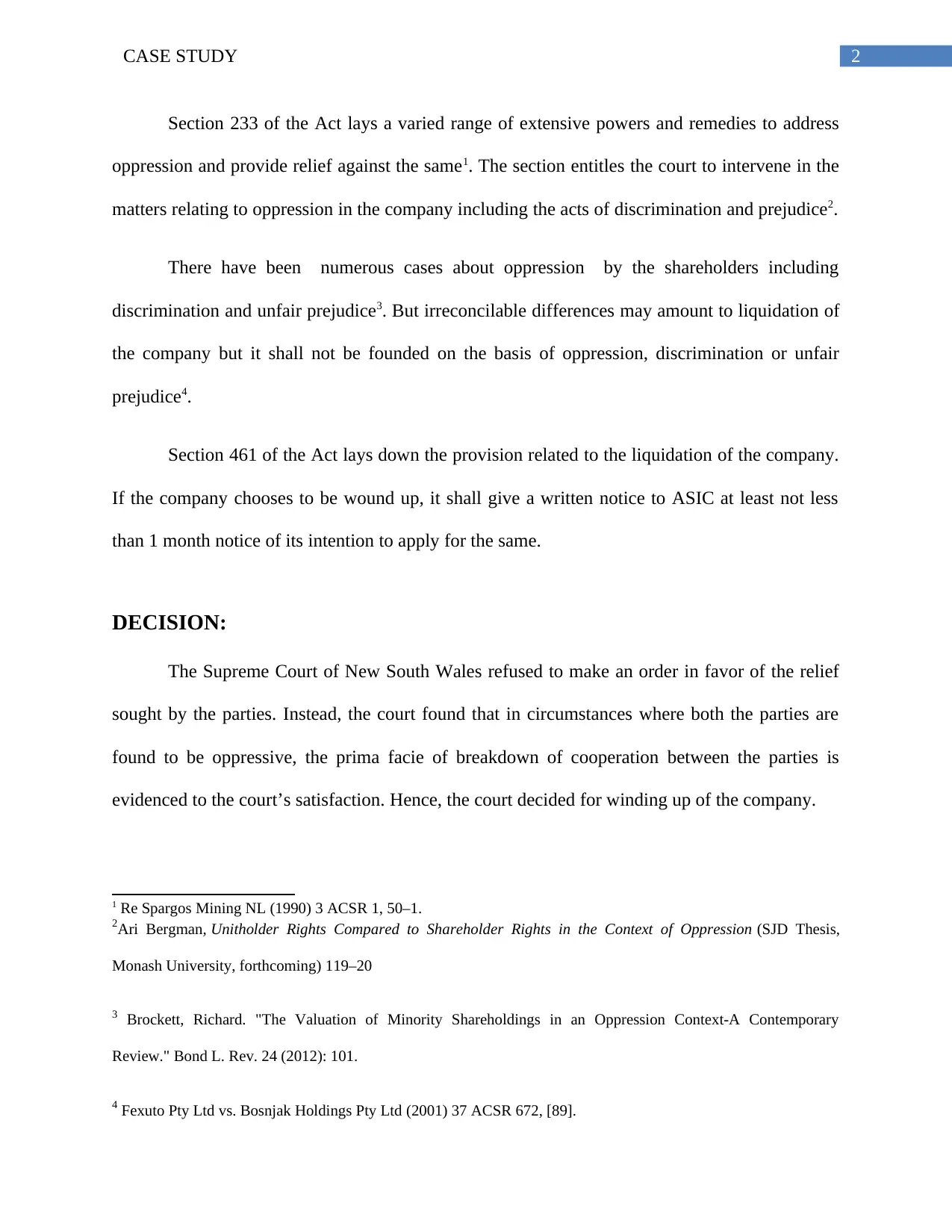

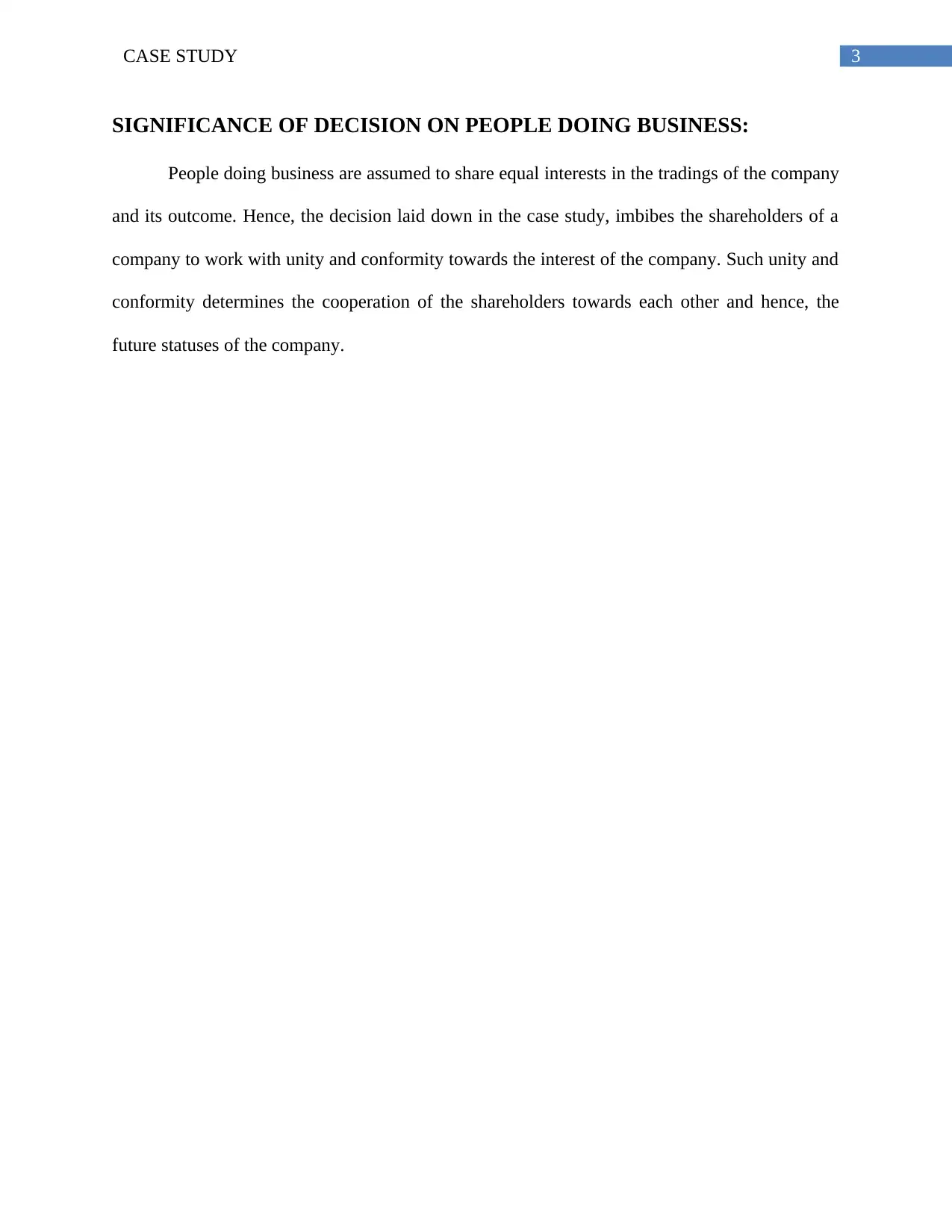
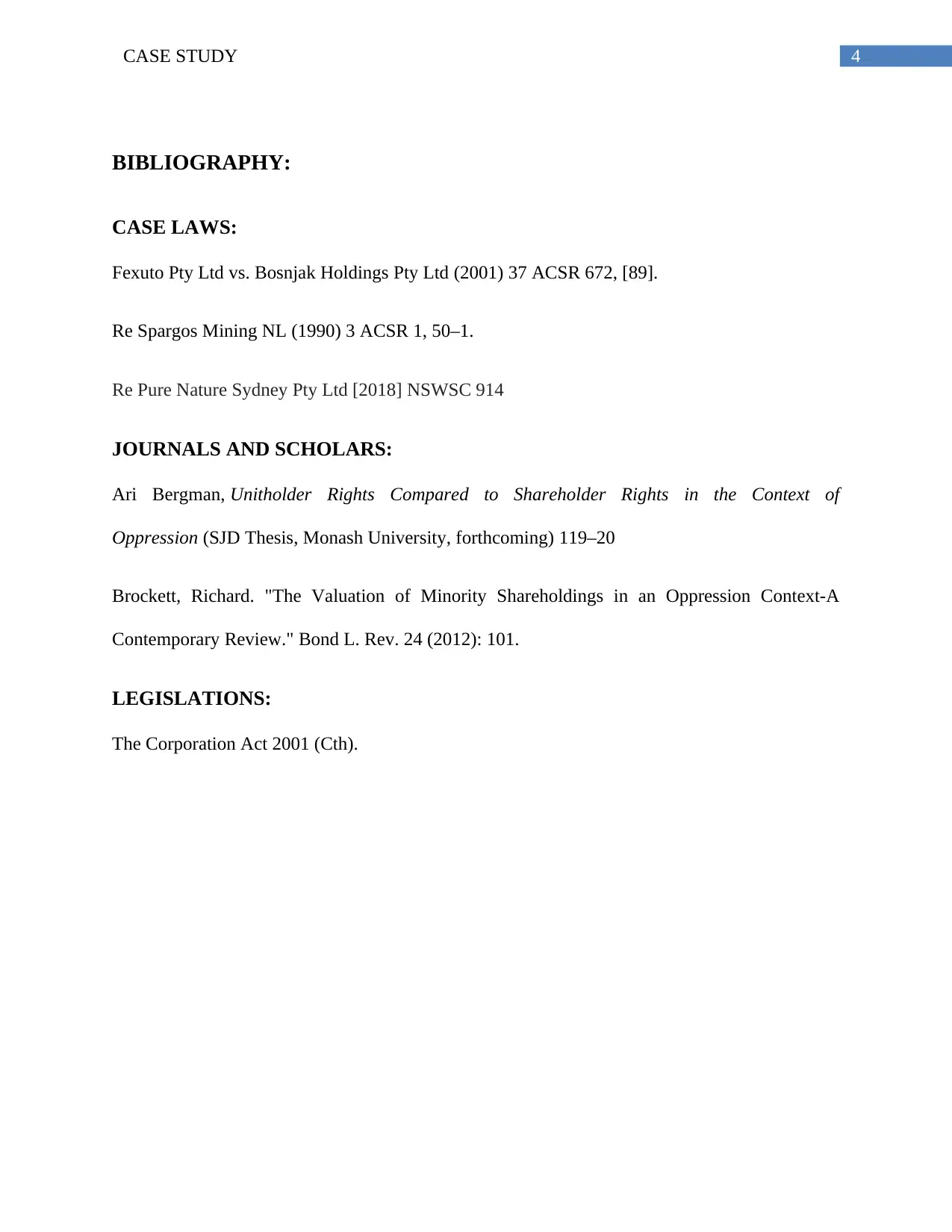
![Case Study Analysis: Pure Nature Sydney Pty Ltd [2018] NSWSC 914](/_next/image/?url=https%3A%2F%2Fdesklib.com%2Fmedia%2Fimages%2Fft%2F774f15a31ea24760bdd22a18ac9048e5.jpg&w=256&q=75)
![Business Law Case Study on Pure Nature Sydney Pty Ltd [NSWSC 914]](/_next/image/?url=https%3A%2F%2Fdesklib.com%2Fmedia%2Fimages%2Fzz%2F427abd4eebc344ee9f711d4d4244e03b.jpg&w=256&q=75)




![[object Object]](/_next/static/media/star-bottom.7253800d.svg)